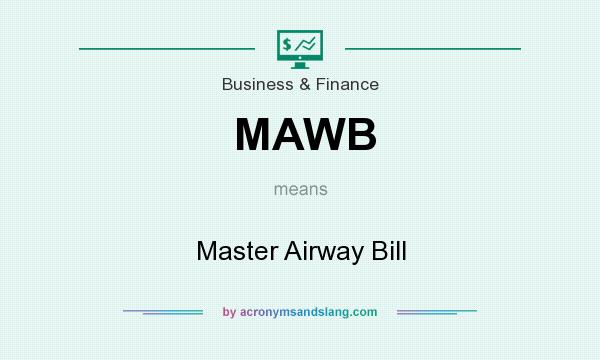Accounting MCQ Questions and Solutions with Explanations Commerce Page-2 section-3


If the going concern concept is taken, an increase/ decrease in the value of assets in the short run is ignored. The concept indicates that assets are kept for generating benefit in the future, not for immediate sale; the current change in the asset value is not realizable and so it should not be counted. IFRS are a set of accounting rules for the financial statements of public companies that are intended to make them consistent,transparent and easily comparable around the world. The going concern theory is essentially an accounting principle that assumes that the entity will continue to be in business for the foreseeable future. To determine if the company is able to continue its business for the foreseeable future, the business entity’s management needs to evaluate various uncertain future events, conditions, or outcomes.
What is the going concern concept?
The going concern concept is a fundamental principle of accounting. It assumes that during and beyond the next fiscal period a company will complete its current plans, use its existing assets and continue to meet its financial obligations.
Companies believe they will continue to operate in the future; therefore, they prepay and accrue expenses. The accounting records will be calculated on the premise of an ongoing business if the company is liquidated, which may deceive the stakeholders. A business keeps going by paying its debts using its existing assets to stay out of bankruptcy. So, how to determine if a company can run for an indefinite period? CAs, experts and businesses can get GST ready with ClearTax GST software & certification course. Our GST Software helps CAs, tax experts & business to manage returns & invoices in an easy manner.
Theory also assumes that the company’s business is stable enough and generates enough revenue to meet its debt and other financial obligations. Any evidence contrary to these assumptions would define going concern concept mean that the entity is no longer a going concern. The duty and responsibility to evaluate the ability of a company to function as a going concern falls on the auditors of the company.
The going concern concept assumes that
Prudence is a concept to recognise unrealized profits and not losses. Except stock which may be valued at cost or market price whichever is lower. As an investor, it is essential for you to know what insolvency and bankruptcy are, since they can affect your investments in a company. However, since these two are very important concepts that require a separate chapter of their own, we’ll delve deeper into them in the upcoming chapter. The worsening financial condition and the inability to meet financial obligations continues to be the number one threat for a going concern. Allows the company to present a more accurate and fair view of its financials without any huge impact or distortions.

Information about What is the relation betweeen historical cost concept and going concern concept? Find important definitions, questions, meanings, examples, exercises and tests below for What is the relation betweeen historical cost concept and going concern concept?. To take the same logic further; thus; if going concern assumption does not hold true then, there is no point in recording the assets and liabilities at historical cost. In such case, the accounting will shift on recording the net realizable value of these assets/liabilities. The valuation of assets of a business entity is dependent on this assumption. Traditionally, accountants follow historical costs in the majority of cases.
The Financial Accounting Standards Board decided in May 2014 that financial statements must show the circumstances that give rise to serious doubt about an entity’s ability to continue as a going concern. Statements should also include management’s assessment of the situation and its expectations for the future. 5 Important Accounting Concepts Accounting is the systematic recording and reporting of financial transactions in a manner that allows for appropriate analysis, evaluation, and communication.
What is Going Concern Concept?
The book of accounts is generally prepared by following some accounting assumptions. Going concern concept in accounting is one such assumption where it is assumed that an organization will carry out its operations for the foreseeable future. It implies that there will be no force on the firm to discontinue its operations and liquidate its assets at very low costs. This principle states that a business entity exists separately from its owners.
Our Goods & Services Tax course includes tutorial videos, guides and expert assistance to help you in mastering Goods and Services Tax. ClearTax can also help you in getting your business registered for Goods & Services Tax Law. Of course, the above is just a synopsis of the auditor’s duties and responsibilities. Auditor’s responsibilities have been increasing everyday and it is imperative for the auditor to be abreast of the client’s business environment. These are the terms/words that are generally used in finance.
Invariably the Auditor and the Management would never agree as the Auditor would try to be conservative in his approach whereas the Management would try to be optimistic. Further the Auditor is required to evaluate the assumptions which the management has made to arrive at the conclusion of “Going Concern”. He is expected to do Risk Assessment after evaluating and understanding the business of the auditee thoroughly and then come to his own conclusion as to whether the judgements made by the management are reasonably correct. Here you can find the meaning of Is there is any exception to going concern concept?
Because of this, expenditure is divided into Capital & Revenue Expenditure \& the Fixed Assets are valued at cost less Depreciation. There are six major scenarios that act as threats to a company’s going concern. The end of a company is usually brought about voluntarily by its owners either through liquidation or through mergers or amalgamations.
Expert Assisted Services
It is an essential component of any business operation because it provides the information necessary to analyze and evaluate past performance and predict future results. Hence the importance of accounting in a business operation is utmost. We can say that accounting is the most important subject since it has a direct bearing on how businesses perform. Due to this, understanding and using accounting principles correctly is imperative to take your business to new heights. Accounting Policies refer to specific accounting principles and methods of applying these principles adopted by enterprise in preparation and presentation of financial statements. To determine whether all the transactions resulted in either ‘profit or loss’ for the period, all the entities will prepare financial statements viz., balance sheet, profit and loss account, cash flow statement etc.
Save taxes with ClearTax by investing in tax saving mutual funds online. Our experts suggest the best funds and you can get high returns by investing directly or through SIP. Download ClearTax App to file returns from your mobile phone. Where the Going Concern basis is inappropriate, auditor to express an adverse opinion.
Auditor’s responsibilities are to obtain sufficient appropriate audit evidence regarding and conclude on, the appropriateness of management use of the going concern basis of accounting. Further, where there is a material uncertainty, the auditor is expected to report the same in a separate paragraph in the audit report. In assessing whether the going concern assumption is appropriate, management takes into account all available information about the future, which is at least, but is not limited to, twelve months from the balance sheet date. The degree of consideration depends on the facts in each case. When an entity has a history of profitable operations and ready access to financial resources, a conclusion that the going concern basis of accounting is appropriate may be reached without detailed analysis. If there are concerns about a company’s ability to continue as a going concern, accounting standards strive to decide what information should be disclosed on its financial statements.
Some of the examples, could be due to Covid the most affected industries were Hotel, Tourism, Travel, Entertainment and many of the institutions had to close down considering uncertainty of future. One of the fundamental assumptions on which the general-purpose financial statements are prepared is ‘Going Concern’. Whether the business will continue or not in the foreseeable future determines the valuation of assets and liabilities between historical/fair value or liquidation value. Though the financial statements indicate the financial position as of a day and performance over the financial period, the stakeholders are interested to know what beholds the future. No business would agree that the end would near, there is always optimism that business will improve and grow.
More Types of securities Questions
Theory, EduRev gives you an ample number of questions to practice What is the relation betweeen historical cost concept and going concern concept? The financial statements are normally prepared on the assumption that an enterprise is a going concern and will continue in operation for the foreseeable future. Financial Statements are prepared at the end of accounting period. When the life of business entity is of very long period, on the basis of assumption of going concern. In case a business expects to continue functioning for several more years, then it would be reasonable to assume that it will be able to pay its debts. Therefore, it is one of the most important accounting principles because it determines whether a company is financially stable.
- Besides giving the explanation of What is the relation betweeen historical cost concept and going concern concept?
- The theory also assumes that the company’s business is stable enough and generates enough revenue to meet its debt and other financial obligations.
- Transactions are recognized as soon as they occur, whether or not cash or cash equivalent is actually received or paid.
- There could be subsequent events that result in outcomes that are not consistent with judgments that were reasonable when they were made.
A business is anticipated to continue operating for at least a year.
The author, Aditya Kumar S is a qualified Chartered accountant with 20+ years of experience in his field. He carries immense knowledge in his areas of expertise and interest, namely statutory audit, internal audit and SOX audit gained through numerous and varied client assignments he has dealt with. He is a partner in South India’s well known mid-size firm.
In English & in Hindi are available as part of our courses for Commerce. Download more important topics, notes, lectures and mock test series for Commerce Exam by signing up for free. Why do we have to consider going concern assumption in our audit? Going Concern concept establishes the relevant requirements and guidance with regard to the auditor’s consideration of the appropriateness of management’s use of the going concern assumption and auditor reporting. A going concern concept in Accounting-By this post, we shall study in detail the important going concern concept out of 12 various accounting concepts on which accounting is based. If you have a business then you should know about these important going concern concepts.
Is a going concern good or bad?
Is a going concern good or bad? A going concern is considered good for the time being. It means your business is facing financial distress but is still able to make payments to keep it operating.
If you have lingering doubts on any financial term, then all you must do is log on to our website and check out the Financial Dictionary. Financial Dictionary is a dictionary or database that contains the meaning of all financial terms. Financial Dictionary has been created to help anyone, interested in understanding financial terms. It is extremely important to know what the financial terms mean when signing on terms and conditions. When availing financial products, you can be easily cheated if you don’t know what you have signed up for.
If adequate disclosure is not made on material uncertainty, the auditor shall express a qualified or adverse opinion as the case may be. The manufacturer has jeans in various stages of the production process. So, if firm decides to liquidate the business today, then the partially manufacture jeans either have negligible or no value. Win over the concepts of Types of securities and get a step ahead with the preparations for Banking and Financial Awareness with Testbook. Candidates can challenge the key till 25th March 2023.The UGC NET CBT exam pattern consists of two papers – Paper I and Paper II. Paper I consists of 50 questions and Paper II consists of 100 questions. The candidates who are preparing for the exam can check the UGC NET Previous Year Papers which helps you to check the difficulty level of the exam.
Additionally, if a business needs to sell its assets quickly, it might not have the time to wait for the best possible price. An accountant must disclose in their audit report if they have any grounds to believe that a company won’t be able to meet its obligations, operate as a going concern, and safeguard its assets. One advantage of accrual accounting is that it allows you to quickly see changes in your company’s financial position over time. Also, this method makes it easy to compare your company’s current performance to prior years. In accrual accounting, the income and expenses of the company from its various activities are recorded when they occur instead of waiting for the payment to be actually received or paid. In other words, accrual accounting records revenue and expense items right away.
It is a combination of Accrual and Cash basis of accounting. Under this method, Incomes are recorded on cash basis and expenses are recorded on accrual basis. Is essentially an accounting principle that assumes that the entity will continue to be in business for the foreseeable future. Unless and until there’s overwhelming evidence of a company closing down its entire business, the company is assumed to continue its operations and go about its business as usual.
What is the going concern concept?
The going concern concept is a fundamental principle of accounting. It assumes that during and beyond the next fiscal period a company will complete its current plans, use its existing assets and continue to meet its financial obligations.
